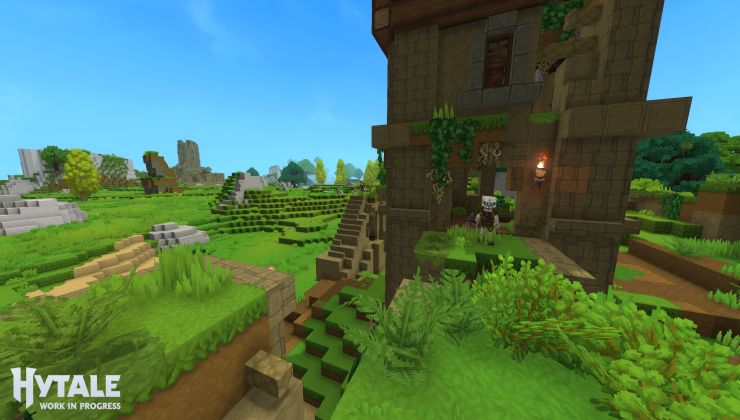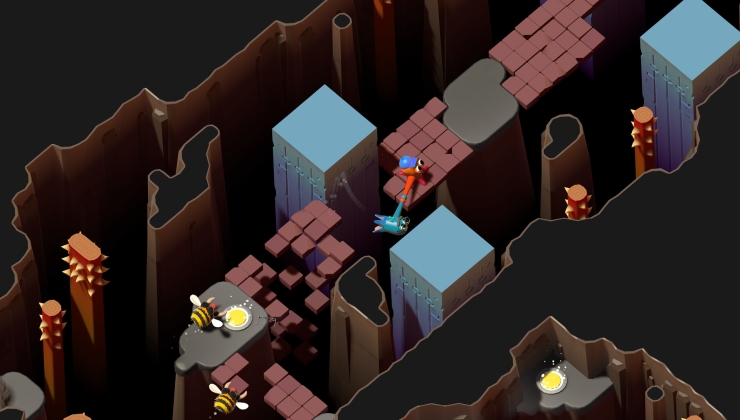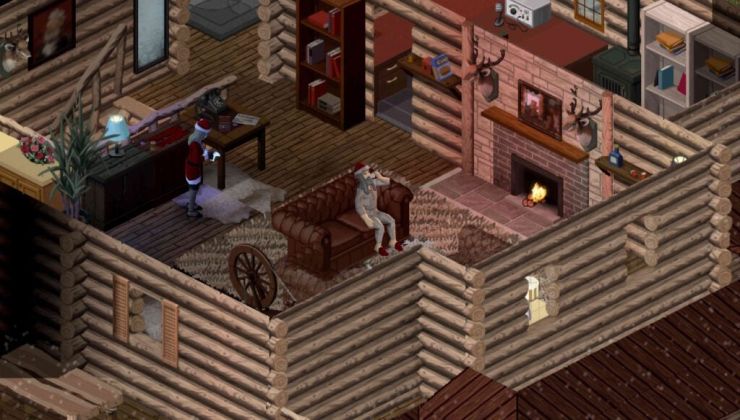Update: Canonical are now saying 32bit libraries will be "frozen" and not entirely dropped.
Original article:
Things are starting to get messy, after Canonical announced the end of 32bit support from Ubuntu 19.10 onwards, Valve have now responded.
Speaking on Twitter, Valve dev Pierre-Loup Griffais said:
Ubuntu 19.10 and future releases will not be officially supported by Steam or recommended to our users. We will evaluate ways to minimize breakage for existing users, but will also switch our focus to a different distribution, currently TBD.
I'm starting to think we might see a sharp U-turn from Canonical, as this is something that would hit them quite hard. Either way, the damage has been done.
I can't say I am surprised by Valve's response here. Canonical pretty clearly didn't think it through enough on how it would affect the desktop. It certainly seems like Canonical also didn't speak to enough developers first.
Perhaps this will give Valve a renewed focus on SteamOS? Interestingly, Valve are now funding some work on KWin (part of KDE).
Looks like I shall be distro hopping very soon…
To journalists from other websites reading: This does not mean the end of Linux support, Ubuntu is just one distribution.
Quoting: CoolitMine too. I started with Suse Linux 6.0 when I remember right. Then I was very long on Suse and switched to Ubuntu about 2 yeas ago.Quoting: MicromegasInteresting twitter replies right now from OpenSUSE Chairman Richard Brown to Pierre-Loup Griffais from Valve, pitching a cooperation between Valve and OpenSUSE.This would be full circle for me as Suse was my first foray into Linux 20yrs ago :)
https://mobile.twitter.com/sysrich/status/1142363021605580801
I did it, because most things (inluding Steam, Spotify, etc) just worked very well out of the box.
And here is the problem. openSUSE is not well known nor widely spread. And Canonical even pisses on the Manufacturers who brought Ubuntu on their machines (e.g. Dell).
So even if openSUSE would be a good choice, it is really sad and much harm to Linux is already done. It will last years, to get that ok again - if it will be ok again.
In the past lots of people gave Linux several chances. May it be according to Steam machines or other Linux hypes through computer magazines. But if you give something a try with more than one failure, it is done for you.
The people at MS surely laugh so much, that they are rolling on the floors of their offices.
Quoting: TermyBut i highly doubt the alternative will be Debian, much to conservative with new versions. And packing a PPA with recent Kernels and Mesa for Debian seems kind of the wrong way.Debian already does, it's called backports repository.
I can't compare to other distributions, but IMHO having Debian stable with new-enough drivers ain't hard.
Last edited by Eike on 22 Jun 2019 at 11:17 am UTC
It’s a very good question but it’s a little bit soon for us to answer. It definitely means there won’t be a 32-bit version of Mint 20, but we’ll do everything we can to ship functional versions of Steam, Wine and popular 32-bit libs and applications. I can’t answer this without first knowing whether Ubuntu will address these issues, but I can confirm these are important to us and we’ll make sure they’re not overlooked.
Quoting: LeopardI simply look beyond a few personal inconveniences at the bigger picture.Quoting: TheSHEEEPToo bad, really. I doubt Canonical will stick with their decision, since Valve not moving away from 32bit pretty much guarantees most gamers won't use newer Ubuntus any more.I don't understand that comment , really.
Seems like we will have to drag along the 32bit legacy even longer. *sigh*
You're implying that is a bad decision but then also saying 32 bit legacy will stick on even longer.
When i look at your profile , it says you're dualbooting with Windows. So you also want MS to kill 32 bit support which will end miserably like Ubuntu's proposal, same games are also 32 bit on that side? Or just asking it on Linux side? Don't you have any 32 bit games?
Killing 32 bit compat is not something MS will do like Canonical does ; without a solution at all.
And the bigger picture is that progress requires sacrifice. Can't play some games/use some apps anymore? So be it, if that's the price to pay to finally get rid of old stuff like 32bit for good.
Of course, if I couldn't play pretty much any games any more due to Steam not working, well, that would be more than just an inconvenience, it would make linux as a whole not viable to me.
Therefore, Canonical deciding to move forward becomes rather pointless if other important developers don't follow. And Valve announced that they won't, as did some others, so there we go...
I think this would require a concentrated effort, and that's just not something the Linux space is easily capable of. [The Sum Of All Egos](https://www.dedoimedo.com/computers/linux-fragmentation-sum-egos.html)....
Quoting: Vardamir[Alan Pope did some testing](https://discourse.ubuntu.com/t/results-of-testing-games-on-64-bit-only-eoan-19-10/11353), and it does not look good. I guess Canonical will reconsider this decision.From the original discussion in May 2018:
Rebootstrapping an architecture is a non-trivial amount of work. It isAlso from that thread:
exceedingly unlikely that, having taken the decision to drop the
architecture, we would then decide to reintroduce it.
--
Steve Langasek
Debian Developer
Ubuntu Developer
slangasek at ubuntu.com
The first step would be to all agree on dropping images/installers but weSo it seems like they knew what they were doing.
should keep the end goal of dropping the port in mind ideally soon as well.
On the list of known blockers for removing the i386 port are Steam and
Wine. Solus' snapped Steam is progressing nicely and Steam deb is difficult
to maintain as is [See removal bug]. That leaves coming up with a good way
forward for Wine.
Thanks!
Simon Quigley
Bryan Quigley
Quoting: arWe are not yet ready to drop 32 bit support. Canonical should know thisWhy “yet”? Why throw away support for older software? There are even open source projects that are not ready to be compiled as 64-bit executable.
The Diablo source recreation effort would be impossible without lib32, because the original source contains parts that are not 64-bit safe.
Second, we're half-way through 2019. When should we drop support for architectures that were obsoleted 20 years ago? Why is no one in these comments finding fault with Valve? Don't get me wrong, I'm very glad and grateful that they support Linux, but at the same time they don't do a very good job of it. Perhaps Steam is easy to install on Ubuntu, I'll never know. On Debain it's an exercise in frustration every time.
Technology moves forward. The people deserving of your ire are those refusing to move forward.
Jokes aside or am I joking at all?
I installed Windows a few weeks back (that solved all Linux related gaming problems one could have - in a instant).
Given the "it's just a little space lost" argument I hear so much lately, it's definitely the best solution.
Until Feral decides to give alternative stores a go (I'm looking at GOG even though I don't really like them, but atleast they are usable), I'm giving them a pass.
If Feral wasn't a Steam exclusive, they would not be a hurt by a move like that at all. Or am I missing any 32bit-only game from Feral?
Quoting: riddleyAs a long-time Debian user, I have no dog in this fight, but man these comments are odd. First, Debian isn't difficult to install.Nobody is arguing that we should all be using 64-bit distros, but this is a discussion about library support mainly. I'm simplifying, but since so many older games are 32-bit only, unless you have 32-bit library support, you're screwed. Despite knowing this, Canonical have decided to flip the finger at their desktop users and drop that support. Hence the outrage.
Second, we're half-way through 2019. When should we drop support for architectures that were obsoleted 20 years ago? Why is no one in these comments finding fault with Valve? Don't get me wrong, I'm very glad and grateful that they support Linux, but at the same time they don't do a very good job of it. Perhaps Steam is easy to install on Ubuntu, I'll never know. On Debain it's an exercise in frustration every time.
Technology moves forward. The people deserving of your ire are those refusing to move forward.
Quoting: riddleyDebian isn't difficult to install.As a person, who uses Ubuntu, Debian, and Arch I agree.
But how do you explain ex. Windows user that to get fresh Nvidia driver and kernel to work with Ryzen he has to open a terminal and type:
sudo echo "deb http://httpredir.debian.org/debian stretch-backports main contrib non-free" >> /etc/apt/sources.list
sudo apt update
sudo apt install -t stretch-backports linux-image-4.19.0-0.bpo.5-amd64
#do you update it manually every time or is there a meta package?
sudo apt install -t stretch-backports linux-headers-4.19.0-0.bpo.5-amd64
sudo apt install -t stretch-backports nvidia-driverDebian is not my main distro and I would be glad if you can correct me and there is GUI way to do this.
Really Canonical, what the fuck?
Quoting: bird_or_cageI wouldn't. I would point him at Windows.Quoting: riddleyDebian isn't difficult to install.As a person, who uses Ubuntu, Debian, and Arch I agree.
But how do you explain ex. Windows user that to get fresh Nvidia driver and kernel to work with Ryzen he has to open a terminal and type:
sudo echo "deb http://httpredir.debian.org/debian stretch-backports main contrib non-free" >> /etc/apt/sources.list
sudo apt update
sudo apt install -t stretch-backports linux-image-4.19.0-0.bpo.5-amd64
#do you update it manually every time or is there a meta package?
sudo apt install -t stretch-backports linux-headers-4.19.0-0.bpo.5-amd64
sudo apt install -t stretch-backports nvidia-driver
Debian is not my main distro and I would be glad if you can correct me and there is GUI way to do this.
If he was so keen on going GNU/Linux then I would point him to something a bit more like Linux. And then point him at the gigantic amount of text that was written over the years.
From what I read the decision to ditch all 32bit thingies was initiated more than a year ago. Unfortunately Valve and SteamPlay really took off in the last year and now that decision has much wider implications than a year ago. New users, developers and Valve plus GoG will (heavily) suffer with this new heavy fragmentation in the Linux Desktop market. The timing is really bad as stated earlier here. I guess especially for Valve this feels like a stab in the back. Even I feel like this.
I really hope that someone at Ubuntu will stand up and scream: "Boys and Girls, that decision seemed sensible a year ago but Linux on the Desktop has changed quite significantly since then. We really should reconsider...".
Last edited by jens on 22 Jun 2019 at 1:00 pm UTC
My thoughts are now are that Canonical might be rethinking the support of 32-bit multilib. But it looks like Valve has made up their mind with the [tweet](https://twitter.com/Plagman2/status/1142262103106973698?s=19) that was sent out by Pierre-Loup Griffais.
I'm curious to see what happens to Ubuntu in distrowatch and how system76 supports Pop_OS! with 32-bit multilib or will they ditch Ubuntu for another distro later down the line?
Right now I'm using Pop_OS! 19.04 on my Dell Inspiron Gaming laptop and I'm really happy with it (finding it really stable). I've used Manjaro for almost two years before switching to Pop_OS!, and I really like using Manjaro as well. Most likely I'm going to switch back to Manjaro and use KDE since [Valve also announced more funding on both KDE and Xorg](https://www.phoronix.com/scan.php?page=news_item&px=Valve-Funding-KWin-Work).
Disto hopping......so much fun :D












 How to setup OpenMW for modern Morrowind on Linux / SteamOS and Steam Deck
How to setup OpenMW for modern Morrowind on Linux / SteamOS and Steam Deck How to install Hollow Knight: Silksong mods on Linux, SteamOS and Steam Deck
How to install Hollow Knight: Silksong mods on Linux, SteamOS and Steam Deck